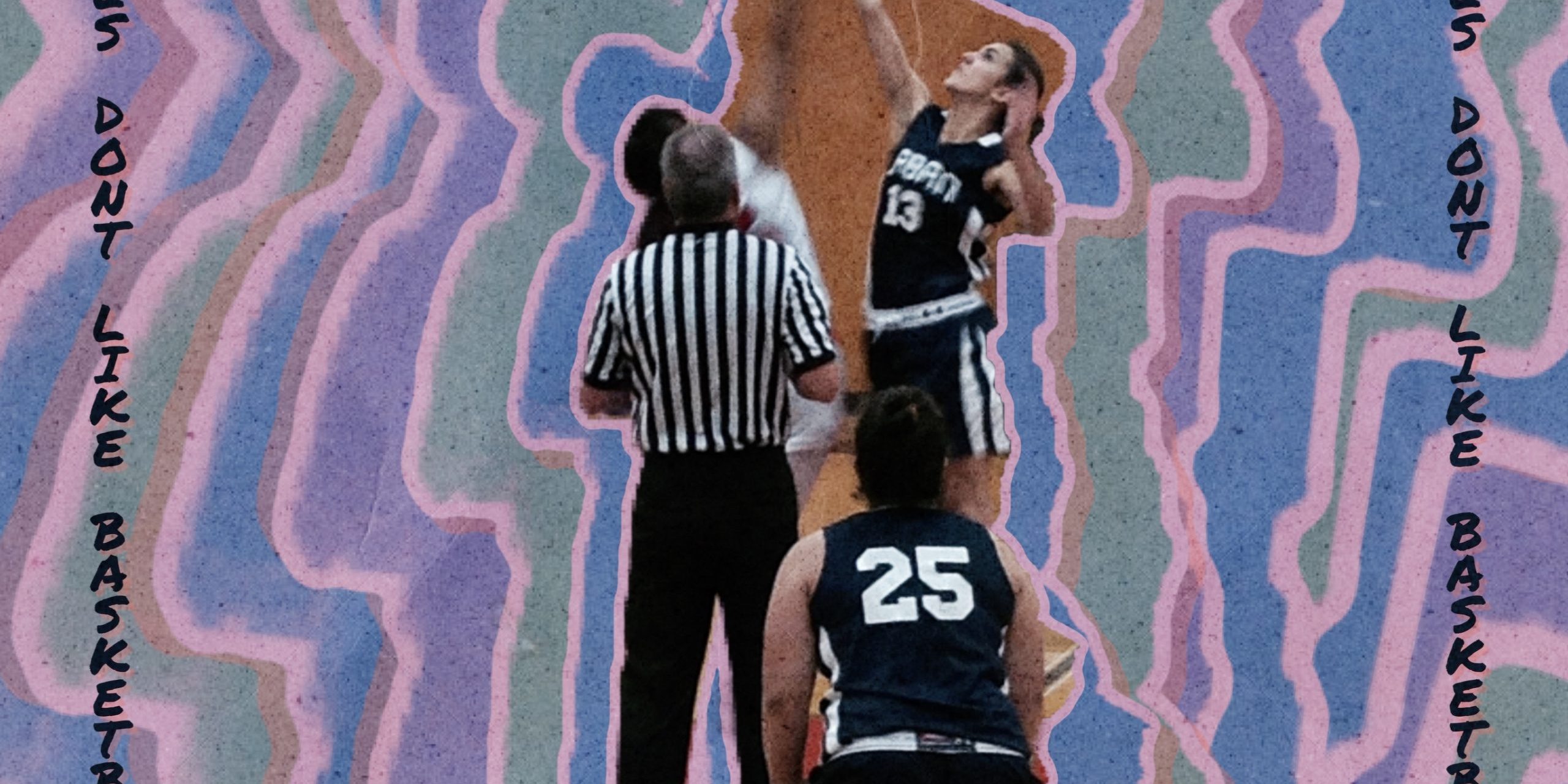Despite the few pickup rounds of HORSE I played with my brother circa 2008 and my limited knowledge of Devin Booker and Kendall Jenner’s five minute relationship, my grasp on the game of basketball is scant. I’ve always been attracted to the sport, but I could never put my finger on why it seemed so off limits to girls.
Sure, I would’ve loved to flex on the sixth grade boys, telling them I attended Phoenix Suns games with my dad, but at what cost? Would they quiz me on the final score? Is the three man weave even a basketball thing or just an Injury Reserve song? I’d like to say it was my alarmingly imperfect hand-eye coordination that prohibited me from ever engaging in the sport, but I’d be lying if I didn’t say I thought it was a boy-ish game. The idea of stepping outside my feminine boundaries was far too uncomfortable to me. How unprogressive of my middle school self, right?
With all of this in mind, I sat down with Lydia Sears, a lifelong player and fan of basketball to discuss the illustrious sport and stigmas surrounding it, and more specifically, why many girls can’t seem to genuinely enjoy it.
Lydia’s relationship with basketball is a long yet difficult one. Despite the fact that she played basketball from kindergarten through senior year, she still caught heat, especially from high school boys, for her enthusiasm in the sport. When she wanted to watch a game with her group of guy friends, she was frequently excluded and told things like “bros only,” regardless of her legitimate interest in basketball. Males are out here gatekeeping activities that are deemed ‘not feminine’… one’s reasoning for watching sports should not have to be akin to their gender.
She recalls an argument with these friends, her freshman year of highschool, where they tried to push the idea that a boy will always beat a girl in a one on one game because they’re biologically “built different.” Boys STAY pulling the biology card. This notion of biological determinism, that men and women’s social positions are determined by their sexual differences, has become so ingrained in our culture that we are constantly perpetuating sexism, even if it’s subconscious. Essentially, the idea of ‘inherent’ characteristics uphold the belief that males are stronger and thus justifies the concept of discriminatory constraints on women’s activities, ie: women can’t play basketball.
On a similar note, boys love to try to make you prove your knowledge on basketball—the sports equivalent of “name 5 songs.” Like, you really think I know who won the NBA championship in 1996? Fuck off. On one end of the spectrum you get shit for not knowing enough about the sport, but on the other, boys like to assume you’re fake if you know too much. There’s a “I’m not like other girls” type of energy where many assume you’re doing it to impress the boys, which isn’t always the case. This kind of thinking is totally sexist and makes it challenging for girls who want to do masculine deemed things, like, let’s say throwing a football or drinking a beer. These activities become forbidden to girls unless they’re hot, and if not, it looks like you’re trying to show off to the guys.
But wait, there’s more! The high school Lydia attended made it clear that basketball was a sport for boys. Not only was the budget immensely smaller for the girls’ team, but the boys’ games received far more attention than the girls’. Whether it be for their beauty rest or just the fact that the male athletes got a pass for being hungover, the boy’s coach insisted that their team couldn’t practice too early Saturday mornings. So, in turn, the girls team had an 8 a.m. practice while the boys came at a later 10 or 11a.m. This is just another example of just how much males are favored over females in the sports world. These concepts manifest over time, teaching girls from a young age that sports are not as much for them as they are for the boys.
Growing up, I’ve heard countless comments correlating girls who play basketball with the lesbian, tomboy stereotype. This is harmful in that it associates liking sports with liking girls…which simply isn’t true nor necessary. In Lydia’s experience, this happened all too frequently. While she was in a heterosexual relationship all of high school and identified as straight, there was a running joke that she would come out as gay down the line. She claims that her involvement in basketball made it easier for that joke to stick than if she had been playing volleyball or other ‘feminine’ sports. In this case, it sucks, as Lydia felt she was not viewed as athletic in the cute girly way, but in a scary boyish sense. The ironic part looking back is that it never made her angry because a small part of her thought it was true; Lydia recently came out as bisexual.
In the face of the entire world being complete assholes, Lydia still stays resilient because mama didn’t raise no bitch! But in all seriousness, while she admits to being frustrated, Lydia’s comebacks to douchey comments prove that she knows what she’s talking about, which is what matters to her. At the end of the day, it’s important to remember that girls should be able to both enjoy and play sports such as basketball free from stereotyping and exclusion, just as much as their male counterparts. And while she’s no longer busting it on the court, Lydia is still a fan, despite the “cool girl” mockery and snide comments about her gender.




This is so dope! Constantly amazed by you! – Kate G